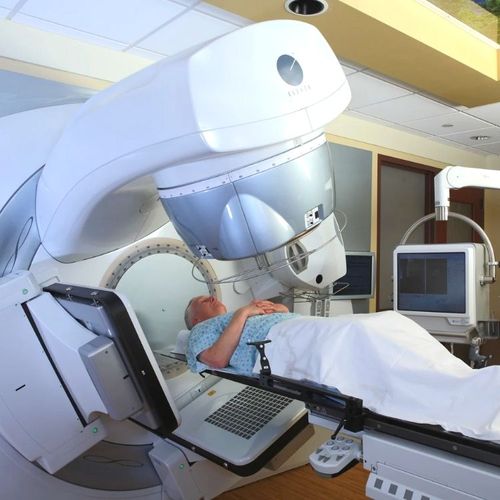A radiation treatment that is commonly used to treat prostate cancer in men older than 55 is equally effective in younger men, according to the results of a preliminary study.
The Study
In the study, Dr. Andre Konski, clinical research director of the radiation oncology department at the Fox Chase Cancer Center in Philadelphia, and his colleagues studied 84 men who underwent external beam radiation treatment for prostate cancer five years before.
They compared the outcomes of patients younger than 55 with those 60 to 69 years of age and with those 70 and older. All of the men were in similar stages of the disease.
At the five-year mark, Konski's team found no statistically significant difference in the health status of the men in the three groups. In all, 94% of the men in the youngest group were still alive, compared with 95% of the men 60 to 69 years old and 87% of those 70 and older.
In addition, between 96% and 98% of the patients that were alive showed no signs that the prostate cancer had spread.
Looking At The Results
Konski cautions that the results do not address the outcomes of younger patients who have more aggressive forms of prostate cancer. And, he adds, the study does not prove that radiation is better than other treatments.
However, the results do refute the common assumption that because their cancer tends to be more aggressive, younger patients need more aggressive treatment, such as removal of the prostate. This study suggests that "when you have a younger man who has an earlier-stage disease, he would do as well [on radiation therapy] as an older man does," Konski says.
"Patients need to factor in all risks and benefits, but external radiation should be given as a viable option for patients to consider," he adds.
Dr. Durado Brooks, director of prostate cancer for American Cancer Society, feels that the follow-up period of five years is too short to draw any conclusions. He notes that it can take a long time for prostate cancer to recur, "and while a five-year follow-up study is encouraging, it's by no means definitive."
Brooks is not sure that this study will lead to any changes in how prostate cancer is treated. "We don't have enough definitive information to say this is the treatment you should choose," he says.
Another Prostate Study
In a related study, researchers in Iceland report finding a variant gene that has strong links to prostate cancer.
Geneticists at DeCode Genetics say the gene is carried by approximately 13% of men of European ancestry and may raise a man's risk of developing prostate cancer by approximately 60%. The gene variant probably accounts for 8% of all cases of the disease, they say.
The gene is also twice as common in African American men as in Caucasian men, helping to explain "a significant part" of why prostate cancer is more prevalent in African-Americans, DeCode's chief executive officer, Dr. Kari Stefansson, says..
